Interview with Zaida Bergroth: “I love to get out of my head”
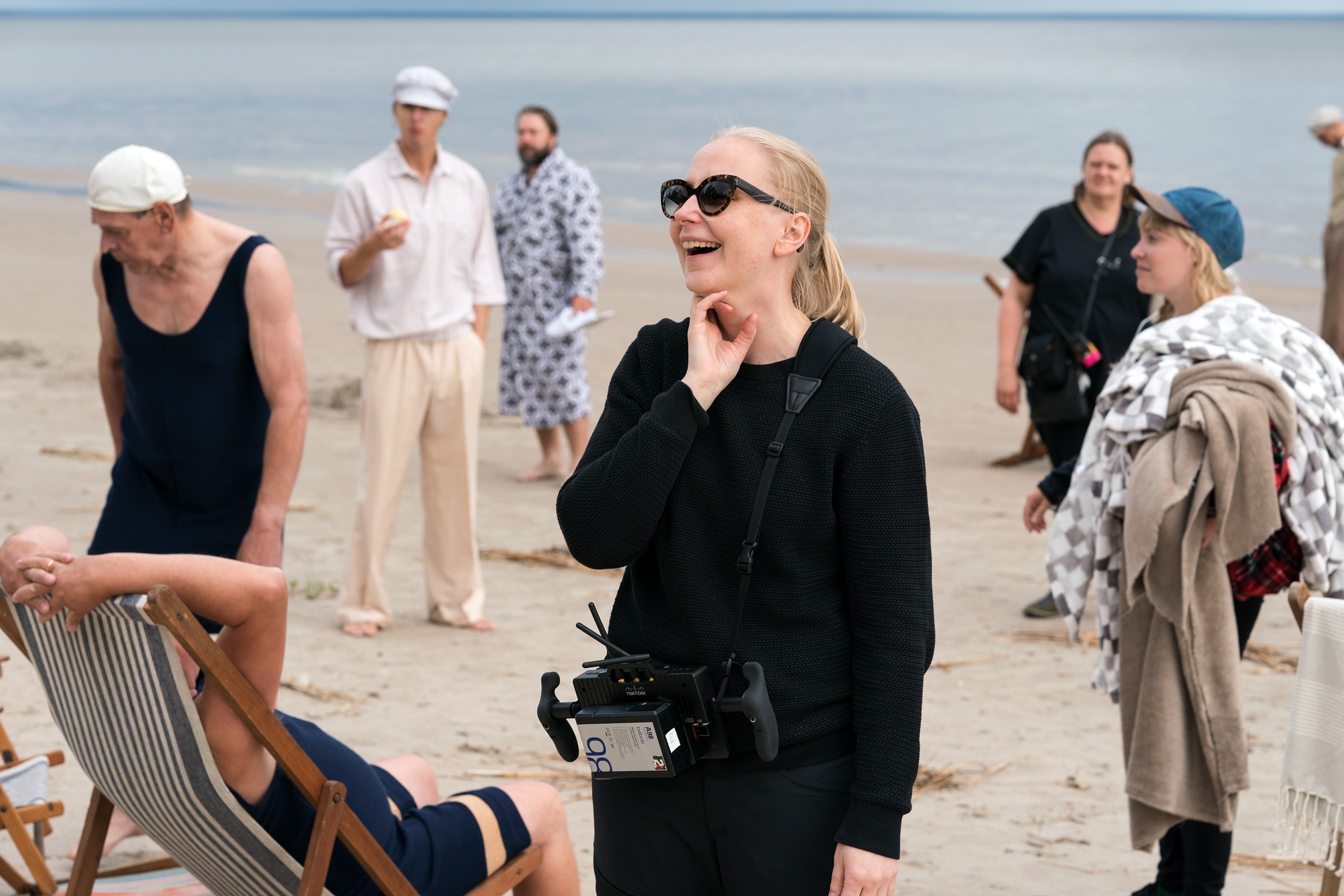
Written by Marta Bałaga
About to unveil her latest drama, Maria’s Paradise, in Toronto, the Finnish filmmaker talks about her entire career.
Maria’s Paradise seems like a bit of a change, as you have never done a period drama before. Before, the furthest you have gone back in time was to the 1970s in your first film Last Cowboy Standing. Was it a big challenge in that respect?
I think it was mostly just exciting. It was something that, as you said, I haven’t quite done before. Even though it’s set in the 1920s, it’s mostly located in one villa, as that’s where she operated from in Helsinki. In a way, it’s its own universe. I think we were able to create a world of its own and this setting also freed us to play around a bit. I didn’t want it to feel like a heavy period piece at all. I wanted it to feel eerie and a bit fairytale-like. I had a great team and a great production designer from Estonia, and this weight lay mostly on their shoulders, but for me, it was just inspiring.
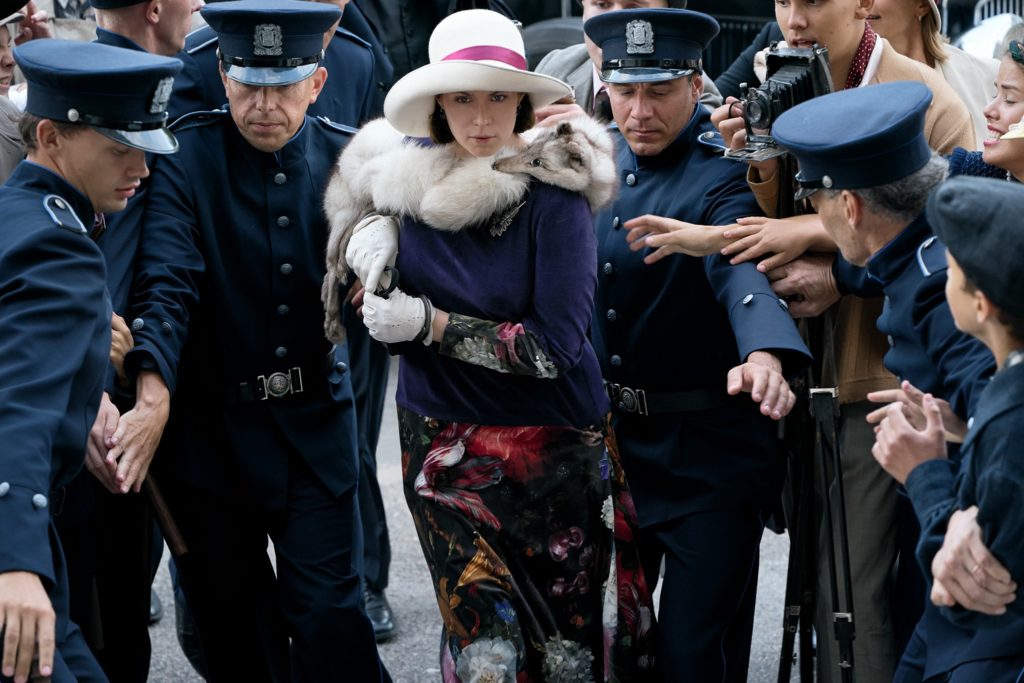 It makes sense, because whenever I read about cults or sects, it always feels very claustrophobic. People just become more and more isolated.
It makes sense, because whenever I read about cults or sects, it always feels very claustrophobic. People just become more and more isolated.
I think there were a couple of hundred people around her. There were entire families, farmers from the Kokkola area. They sold everything they owned and gave the money to Maria. As a result she was quite wealthy, and she was in charge of all the finances.
Our film focuses on the time when they settled in Helsinki around 1927, as they run into some problems – Maria had issues with everyone who opposed her. So they decided to start their journey towards Jerusalem, and Helsinki was supposed to be just one stop. I know that they had very clear rules: you weren’t supposed to talk to strangers, because they don’t understand your way of living. They dressed in the same way – it all served to make this group tighter. After living like that for a long time, it can be very scary to move away even though you know it’s wrong. Your whole identity is based on those rules, so you have to let go of your own identity! Which is very much the case for our main character.
My film talks about this relationship between love and power. I can understand how wonderful it is to give all the responsibility to somebody else and just do as you are told. It’s almost freeing. In our story, the main character Salome has a strong need to get acceptance from Maria. Which can be dangerous, because you can really lose yourself in that system. When she finally starts doubting Maria, it’s a big deal. In a way, it’s a coming-of-age story.
It’s rare to have a woman lead a spiritual sect like that. What were her methods and how did she convince these people to stay?
I read books and studies about her, and spoke to people who are the children of the members of the sect. They all say that what made her special was that she would turn those meetings into a performance. She would bring a bed to church, dress in a nightgown and have some flowers in her hair. She wanted to look innocent – like an angel of God. She was an actress in a way.
She spoke a lot about a brighter future which, of course, was very effective at that time, right after the Finnish Civil War. She would depict paradise-like places where they would settle down, like Jerusalem, and controlled people by convincing them she could see through them and that she was the messenger from the other side, able to communicate with your late father or brother. She was psychologically very gifted – she could see people’s fears and she was not afraid to use that knowledge to her own advantage.
Her story touched me, because she came from a very poor background. She had eight siblings, her mother was struggling with mental illness and Maria was given away when she was five years old to serve in different households. Her future didn’t seem bright. No matter what her motives were, it was interesting that she was able to turn everything around, being a young woman in Finland at that time and having all this power in her hands. I had to admire that a little bit, even though in a way she was a monster.
It seems like a story of survival.
That’s a nice way to put it. We don’t know how she felt. I don’t know if she really thought she was a messenger, but she was so convincing that maybe at one point she did. She once told someone that she’s afraid she has these two different personas taking turns in her, one being totally God-obeying and the other completely out of control.
What touched me was that there was this girl who needed love, as we all do, and she wasn’t getting it, so she forced people to give it to her. She demanded loyalty and attention – she couldn’t live without it. And she would get dangerous when people refused. But it’s heart-breaking that even with all this power, there was no chance for her to experience the real thing.
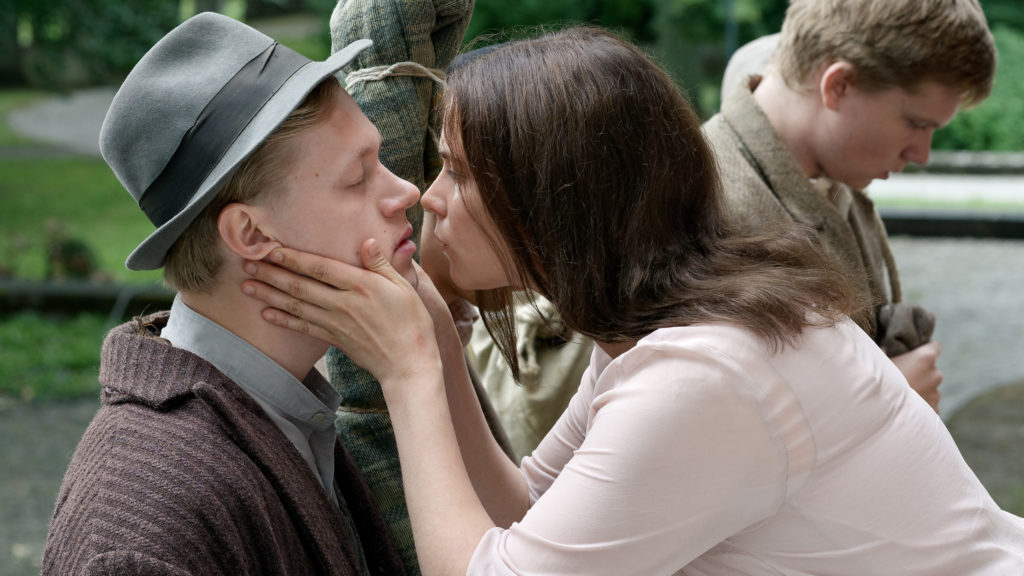 How did she navigate her sexuality? When it comes to religion, women usually have to walk a very thin line in that department.
How did she navigate her sexuality? When it comes to religion, women usually have to walk a very thin line in that department.
Everybody says that she used her sexuality in a clever way. Men and women alike were drawn to Maria – there was this boldness to her. They would drink alcohol, dance, it wasn’t very strict in that regard. She had the power to tell people whom they should marry; she was naming their children.
When she chose someone to join her in the bedroom, she would just take his hand. At the same time, she actually got false documentation from a doctor claiming that she was still “untouched” and she liked to underline her innocence. It’s a mystery, but in my film she is not afraid of getting close to people. She uses intimacy, but also motherly love – she offers it to Salome. There is this strange, almost erotic element to it.
Such admiration was also very present in your previous film, Miami.
Actually, the themes in both films are quite similar. Once again, there is this magnetic woman that the main character looks up to, and she really needs admiration. She needs it to shine. But this one is obviously more extreme.
I understand Maria Åkerblom and I do feel for her, but I couldn’t really look at things from her point of view. She was convicted of attempted murder and I didn’t want to put her on a pedestal or justify her actions. But then we came up with this solution to look at her through the eyes of a girl that admires her so much.
I was thinking about all these dark tales I loved as a child, by the Brothers Grimm and Hans Christian Andersen. Like The Little Mermaid, which is pure horror. I felt I could use them to get the necessary distance and to be inspired visually. They were important to me growing up, because it felt like the people who wrote them respected children. Nobody was talking down to me.
You seem to be very interested in relationships or families. But it’s a dark take on people who are supposed to be so close. Why are you drawn to that?
It’s difficult to say. I like complex characters – I like trying to understand them. I don’t know where it comes from. I am not defending them, but I try to make it harder to judge them.
I hear that from many filmmakers, but that’s what we do in our everyday life: we judge. So why shouldn’t we judge in films?
Because then it would be way too easy. You spend many years making these films, so there needs to be some complexity to keep you going. I like it when I have a script I can understand, but with a question mark at the end; something to explore with the actors. I am so tired of my own imagination, my own experiences and my own relationships. I really love it when I can get out of my head.
Even though the actual shoot is always so chaotic, I love when things start to “live” and the characters are finally showing what they are all about. And they are surprising me! I loved working with Pihla Viitala for example, because I saw every scene in my head, and then they changed completely. That’s the best thing – when it all changes and becomes more real somehow.
But that’s a risky strategy. So you don’t expect to be on set, knowing perfectly well how this character is going to turn out?
Of course I know where it should be going, as it would be horrible if an actor couldn’t understand what I want. But once they do, and then trust me enough to let go… It happened a few times with Pihla. I think she trusted me enough to bring vulnerability to this character which I really liked. It happened also in The Good Son with Samuli Niittymäki. There is a plan, and then we let go.
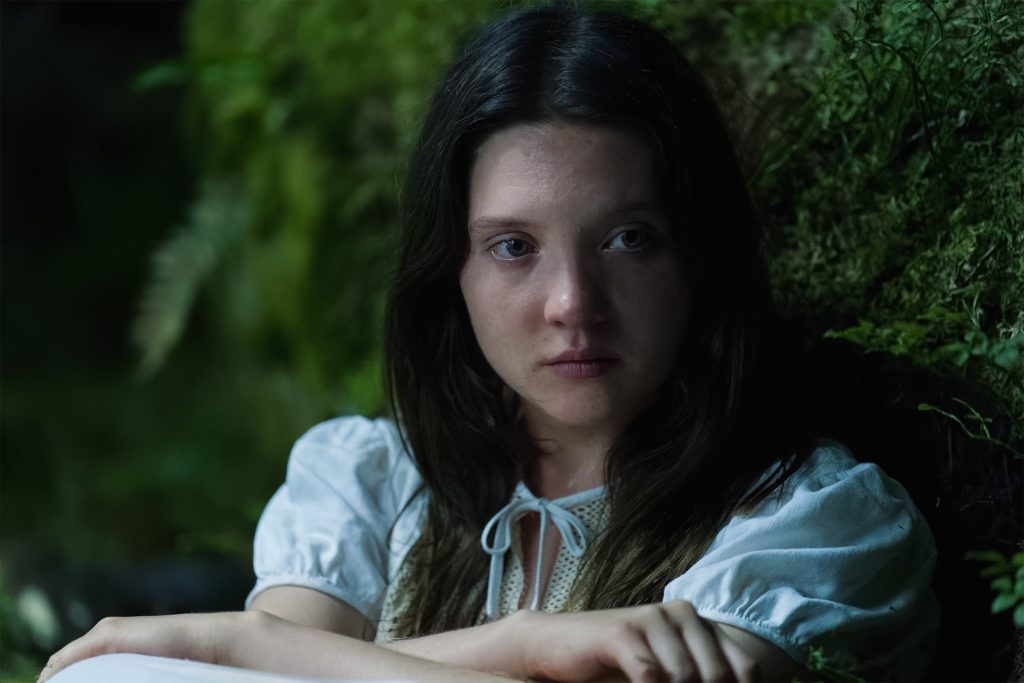 Another film, another odd relationship: this time between a mother and a son. Very borderline, you don’t even know if it’s still appropriate or not.
Another film, another odd relationship: this time between a mother and a son. Very borderline, you don’t even know if it’s still appropriate or not.
It’s a good word to describe my films: borderline. It should always be like that. I am not that interested in conventional stories. It’s more interesting once it gets more dangerous, as long as I feel that it’s somehow real. It’s going in a direction I didn’t imagine and I am holding my breath. What Samuli brought into this relationship was dark humour. Like it was some kind of a game between him and his mother, and this little smirk he did now and again was really something I haven’t imagined. I imagined something more serious, simpler. And he made it scary.
That’s why when we rehearse I am mainly just sitting and listening. Trying to see what people can add to the story. In Maria’s Paradise, Satu [Tuuli Karhu], who plays Salome, had a difficult role. Just like Sonja Kuittinen in Miami – they had to be normal. Sometimes it’s easier to play someone a bit more extreme, like Angela in Miami or Maria. But Satu brought this curiosity that’s the key to her character, it makes her seem so alive. It was one of the things we were able to find together. I get so inspired by actors who really put themselves out there.
How important are certain collaborations in you career, like the one with [screenwriter] Jan Forsström, with whom you have been working for years? Does it help to know there is this person that already knows your sensibility so well?
Jan works with many directors and he is very good at understanding people’s point of view. Where they come from, what is important for them. He definitely knows what kind of stories I am interested in, what are my strengths and what are my weaknesses, too.
Even though in the case of Maria’s Paradise the script was by Anna Viitala and Jan came to the project a bit later, I think that there are many advantages to working with people you actually know. Like cinematographer Hena Blomberg, who also shot Miami. With Jan, we listen to a lot of music early on in the screenwriting stage and search for different atmospheres. It’s a very handy tool and he is excellent at that. There are many people I work with over and over again. You just get where you want to be, and you do it faster.
When discussing some of the current issues, someone recently told me: “But Zaida is not a female filmmaker, she is a filmmaker.” Meaning that you don’t always seem to fight for female-centred stories. Has it changed?
I am confused by that conversation sometimes, as this term can be used in a diminishing way: “This female filmmaker.” I never really lingered around that question too much, but I am more critical of myself now – especially when I look at what I have done. I started studying filmmaking 20 years ago when I was 19 and yes, I question some of my decisions. I am more aware of my own behaviour and now I want to make films about women.
Let’s take Selma Vilhunen’s Little Wing – it’s such an important film to me, because it really touched me and I connected to the story. After I walked out of the theatre, it really kicked in how great it was to spotlight these 12-year-old emotions and experience. I have seen female leads and stories about women, but not nearly enough and this one had such an impact on me.
And I have to add that even though I have of course seen great films about women made by men, we definitely need also films about women made by women. Sometimes I think I can recognize this sense of personal experience that makes all the difference.
[In 2007] I made a short film Heavy Metal and it told the story of a 15-year-old boy. I love this film, but the fact is that I didn’t even think that it could be a girl, and it was written by Jan and me. It was my own choice. Now, I just want to be more aware of why I am – or was – making certain choices. And in The Good Son, the protagonist was a young guy again. Maybe it was just easier to write?
I am proud of these films and I am really happy I made them. But I think I made this choice too easily, without really challenging myself. I want to be really honest with myself now. What are my motives? Am I really doing my job as a female director?
There used to be this theory, only recently rebuked, that a male protagonist is a safer choice – especially commercially.
Maybe I was affected by some of these theories, even subconsciously. That being said I am really enjoying this time now, with #MeToo and all these women talking about the wrongful use of power. We all need to look at what we are doing – women too.
I always felt like a lone wolf in a way. I needed to get my projects moving and sometimes I felt alone, struggling. Now, I feel close to my colleagues: we talk, we support each other. It’s something really needed and new. Men have had that, but women were too busy fighting their own fights. There is something good happening now with these conversations and I don’t feel that lonely anymore. It’s not my fight – we are in it together.
When I graduated, there were so few female filmmakers that it felt like maybe only one woman will get funding this year. We were all competing against each other! It’s much healthier now, we understand it was a made up situation that was hurting us. It has been brutal to admit that they made me think like that too. But not anymore.
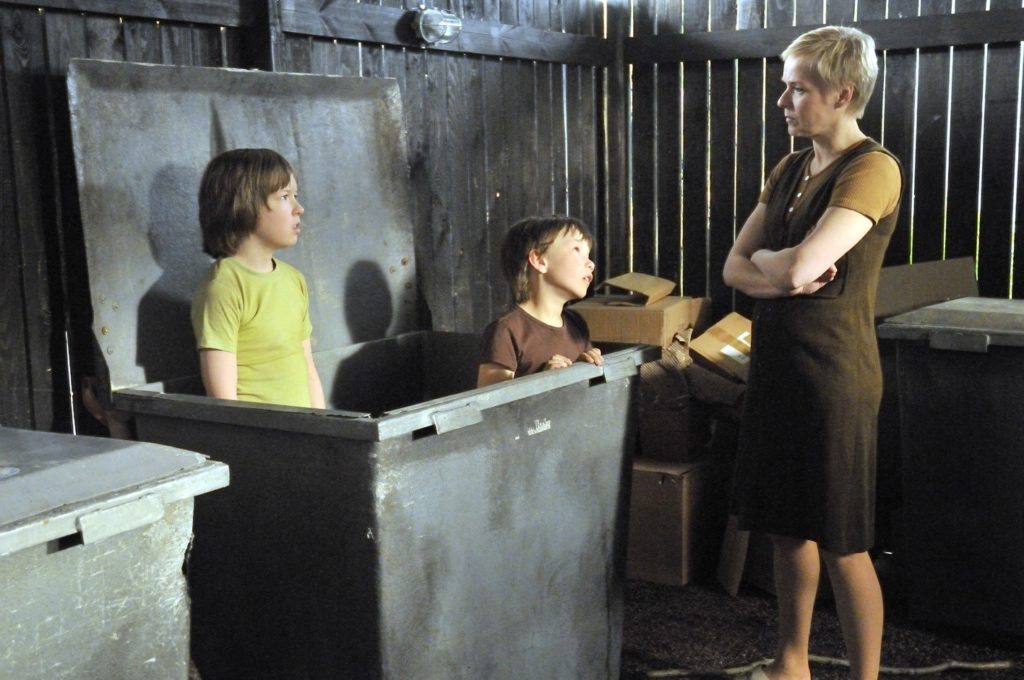
When you decided to do Last Cowboy Standing, what made you want to tell this story? Of a family trying their best not to murder each other, for a change?
My graduation film, Glass Jaw, was about a family with a teenage girl who starts to box as a hobby. It was about her, her little sister and her mother. It’s important to me, because I feel I somehow found my own voice through that work. It was more personal than anything I have ever done, but I knew that getting a feature film made would be such a big task.
I fell in love with this play [by Antti Raivio] when I saw it and felt I know this world – I didn’t need to write it from the start, I could just take it and make it my own. And I thought it would be easier this way, but it was quite a difficult production because it was so massive and I was a first-timer with long features. I haven’t seen this film in a very long time, but I know it’s important to some people and I am proud of it too.
You said that the key is to connect to the characters. But it can be difficult sometimes, so how do you find your way in? I don’t remember any “easy” characters in your films.
Very often there is a mystery to them. I have this tendency to navigate towards the difficult and the extreme, but I don’t know why. Maybe you figured it out?
I felt that you find your way through relationships. Not separately, but through the way these people interact.
I would say that too. There is this challenge in understanding questionable characters and I like that. Also, I see this tendency in myself that I am trying to understand too much. I remember when I did The Good Son, was travelling to different festivals and I would get so offended when people would criticise them as people [laughter]. Someone would say about the mother: “Yes, but she was a psychopath.” I always try to defend them, although it might be harder with Maria Åkerblom. I can’t really do that, at least not too much. All these nutters are definitely my family.
I recently had the pleasure of talking to Lucrecia Martel and I heard that you really appreciate her work. Why?
She is just one of these wonderful, inspiring filmmakers. When I think of whom I really admire at the moment, it’s Andrea Arnold, Lynne Ramsey and Lucrecia Martel. And Jane Campion, Sofia Coppola. Right now I am really drawn to their work and I am happy that here are so many!
When I was a child and we had this great library of VHS cassettes, it felt like there were no female filmmakers. So I grew up watching Hitchcock instead. Which is ok I guess, as I recently talked to someone about Psycho and just found it so touching. It’s such a sad story about a very twisted mother-and-son relationship. I love genre, because there is this additional layer of psychology to peel off.
With the directors you mentioned, if you wouldn’t read anything and sleep through the opening credits, you would never call their work “feminine”.
They are very bold and they all have their unique style, and it’s exactly this boldness that’s so inspiring. It gives you courage. You can’t confuse them with others. I have this feeling that they reveal themselves to us and I really appreciate it.
When I think about my own personality, I really enjoy being in the background. I don’t like the spotlight; I am more reserved. But my films can be quite brutal and I like it. I like when my characters are not conventional or easy, but I don’t know if that’s Finnish or not. Black humour, yes, I would say so.
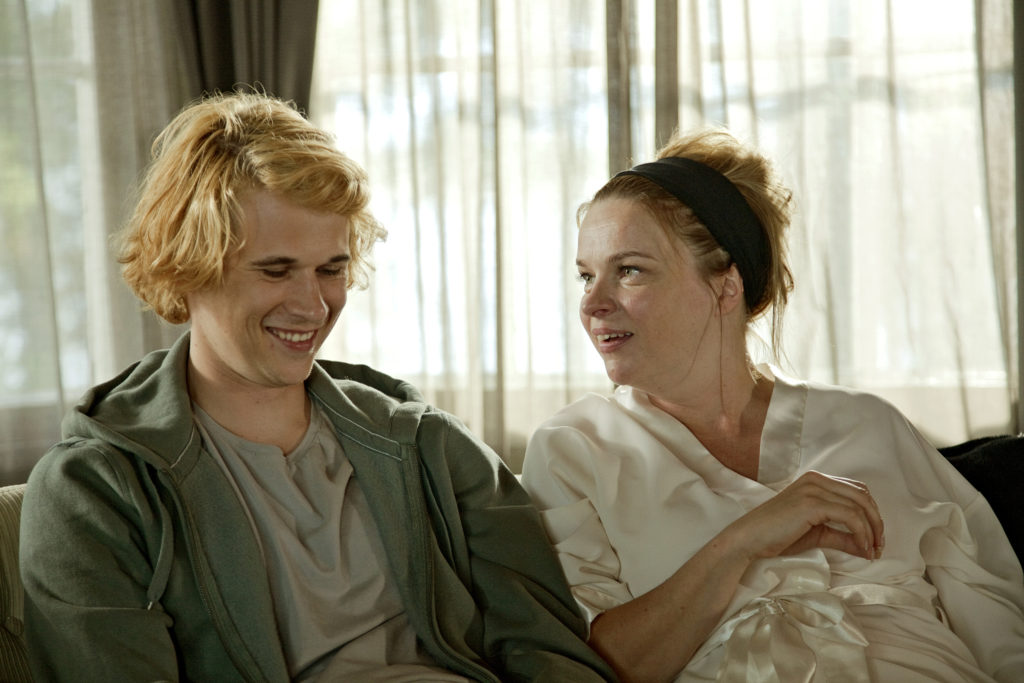 I remember showing The Good Son in Italy and people were so offended. How could I dare showing this relationship in such a horrible way?! Over there, anything concerning mothers is untouchable and holy. But one of the most precious compliments I have ever received was when The Good Son was a nominee for the Nordic Council Film Prize and Helen Mirren was the president of the jury. She told some journalist that she really enjoyed how I handled my female characters. She found it brutal and honest, because I take my gloves off. Maybe that’s something I could be really good at.
I remember showing The Good Son in Italy and people were so offended. How could I dare showing this relationship in such a horrible way?! Over there, anything concerning mothers is untouchable and holy. But one of the most precious compliments I have ever received was when The Good Son was a nominee for the Nordic Council Film Prize and Helen Mirren was the president of the jury. She told some journalist that she really enjoyed how I handled my female characters. She found it brutal and honest, because I take my gloves off. Maybe that’s something I could be really good at.
Yes, because you are not afraid of the ugly. Even with Miami, behind all this glitter and butterfly corsets ugliness rears its head again.
I need ugliness or brutality of real relationships, the sense of intimacy that’s real. That’s what I am going after: clumsy people trying to get close. Nobody knows how to do it, but the intention is there.
I need to respect all my films, they are what they are and they needed to be just that because of different reasons. But of course now I would challenge myself more. Ask: “Is there a good reason why this character is a man?” Glass Jaw was so personal to me and maybe it scared me a bit? And it was easier to deal with men after that.
Once it gets personal, is it harder when people judge it because you are in there somewhere as well?
I think so. As a viewer, I need to feel that somebody really knows what he or she is talking about in order to engage. It simple: if I expect that from somebody else, I need to do it myself. It’s incredible when you feel that they have something special to tell you, just you, and we can sit down and be with each other. With Little Wing, I felt that. It’s wonderful to respect your audience in that way. It’s a gift. I love it when people take things so seriously.
Excerpts of the interview were published in Cineuropa.
